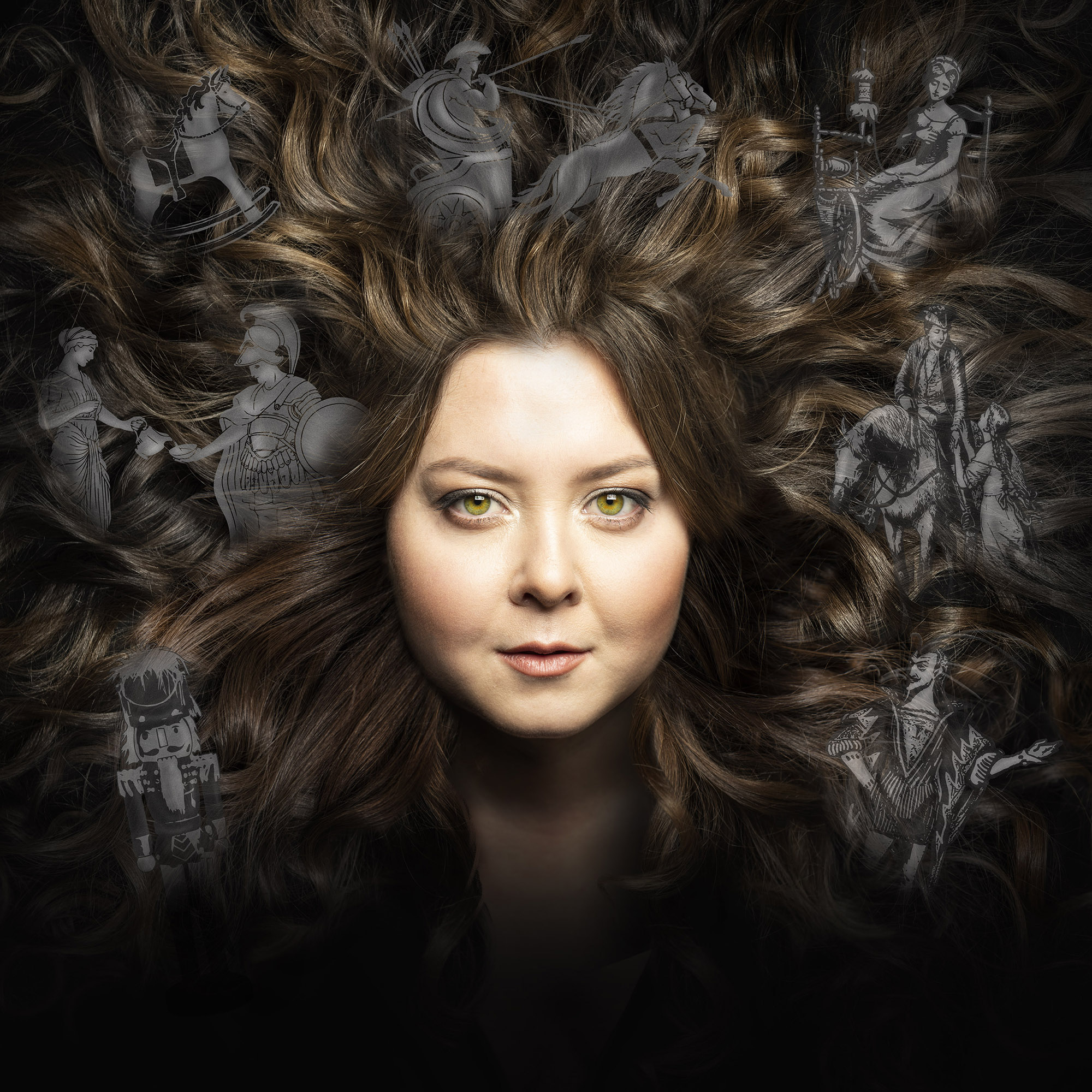Anastassiya Dranchuk
RITES DE PASSAGE

Photo: Pavel Pass
“Pianist Anastassiya Dranchuk has claimed her place among the global musical elite.”
Berliner Zeitung
Life, with all its ups and downs, is also marked by many transitional periods. In some cultures, they find expression in traditions like rites of passage. Under this programmatic idea, Anastassiya Dranchuk has united works by Peter Tchaikovsky, Fazit Say, Franz Schubert, and Franz Liszt on this CD. Other connecting factors between the pieces are informed by the pianist’s personal life.
All four compositions on this program are highly complex, as are the thought worlds which form their basis, providing a wonderful challenge to the performer. Tchaikovsky’s “Nutcracker Suite“ takes Anastassiya Dranchuk back to her own childhood, during which E.T.A. Hoffman’s story – the inspiration for Tchaikovsky‘s Suite – was her favorite Christmas tale. In his transcriptions of Tchaikovsky’s originally orchestral ballet music into a virtuosic piano piece, Mikhail Plentnev undertook a kind of lossless compression, distilling the main essence of the work.
Kurdish pianist Fazil Say interprets the well-known antique saga of the Trojan Horse in his “Troy Sonata,“ written in 2014. The doomed love between prince Paris and the married Helena, as well as a ten-year long siege which finally comes to an end through a cunning subterfuge involving the legendary wooden
horse, stands at the core of this piece. The dramatic scenes which must have unfolded are painted in Fazil Say’s dark tonal colors, his chromatic sightings and Oriental touches, resulting in driving, energetic, but also introverted and mournful effects.
Goethe’s drama Faust is another prime example for transitions dissolving into new conditions, seen in the main character‘s pact with the devil. Franz Liszt’s adaptation of the Schubert song “Gretchen at the Spinning Wheel“ is an excellent example for the virtuosic style of this composer. Gretchen, seduced by Faust, ponders her immanent destiny. The music intensifies her emotional state through a combination of high drama and fragile inwardness.
Franz Liszt’s “Mephisto Waltz“ enters the stage in an even more virtuosic, more energic, and more ecstatic manner, and is a proud twelve minutes long. It deals
with the dark seductive powers of Mephistopheles, who also carries something supernatural about him, which the piano part strives to visualize.
This program, then, mirrors a variety of states of transition – between birth and death, childhood and maturity, East and West, war and peace. But it also thematizes the areas of tension between good and bad, light and dark. Anastassiya Dranchuk points out many connections to her own lived reality as an artist: Faustian aspirations, which sometimes have a desperate edge to it, are relatable to the lives and situations of artists and people in the culture industry. She describes her artistic credo: “Faust warns us: Stay true to yourself! Do not sell your soul for success. Own up to your mistakes. And always re-member that it is your responsibility to serve society.“
Anastassiya Dranchuk
Anastassiya Dranchuck was born in 1989 in the Soviet Union. In 2001, she followed an invitation by the Hochschule für Musik Hanns Eisler to Berlin to study under Galina Iwanzowa. From 2009 to 2011, she studied with Pierre-Laurent Aimard at the Musikhochschule Köln and took part in master classes by Boris Bloch, Bernd Glemser and Pavel Gililov. She was awarded several international and national prizes at renown competitions, among them the Horowitz competition and the Steinway com-petition. She also won first prize in the category of solo piano at Jugend Musiziert. Anastassiya Dranchuk has a lively international concert career and has performed with ensembles like the Kremerata Baltica, the Staatskapelle Berlin, Klassische Philharmonie Bonn, Brandeburgisches Staatsorchester Frankfurt/Oder, Staatskapelle Halle, WDR Rundfunkorchester
Köln, and others. She has played in important concert halls like the Salle Pleyel in Paris, Palais des Beaux Arts in Brussels, the Great Hall at the St. Petersburg Philharmonic, Beethovenhalle in Bonn, Konzerthaus in Berlin and the Berliner Philharmonie, Laeiszhalle in Hamburg and CRR Concert Hall Istanbul. She performed at the Kammermusikfestival Lockenhaus, Bad Kissinger Festspiele, Styriarte Festival in Graz, and the Rheinbraun Festival. Since 2012, she is being mentored by Maesteo Gidon Kremer.